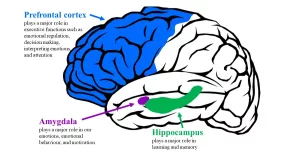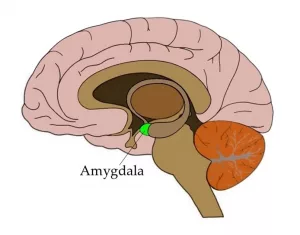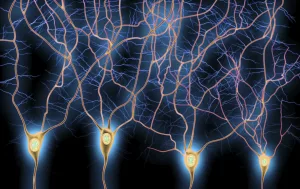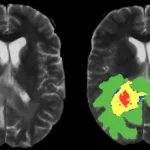The Surprising Perks of Letting Your Brain Go Offline
Alright, let’s talk about the elephant in the room—literally. Ever notice how you start cleaning your room when you promised yourself you’d finally tackle that project? Or how your mind morphs into a weird mix of “how did I get here” and “I wonder what clouds taste like” during a Zoom call? You’re not alone. Truth? That zoning out—the kind people love to call “unproductive”—might actually be your brain’s sneaky way of learning more effectively.
We’ve all been told to “focus, focus, focus.” And yeah, deep work is crucial. But here’s the deal: Your brain likes to wander. Loves it, even. And maybe that’s not such a bad thing.
If you’ve ever felt guilty for getting lost in space (mind-space, not outer space, though hey—maybe that counts too), this post is your green light to chill for a sec. We’ll unpack how mental wandering feeds cognitive learning, where it tanks productivity, and how to use it like a pro instead of an excuse to binge TikTok. Let’s dive in.
Letting Your Brain Get Messy—A Scientific Win?
What’s really happening when your brain zones out?
Picture this: Your brain is like a curious kid rummaging through a messy closet. Random connections here, a few irrelevant files there… but somehow, it’s “organizing” stuff you didn’t even realize needed sorting. That’s your default mode network (DMN) in action—it’s the part of your brain that kicks in when you’re not actively focused on tasks.
In a study from HHMI’s Janelia Research Campus, neuroscientists found that when mice casually explored a room, their brains processed and retained environmental details faster than when they were forced to navigate with clear goals. Translation: Free-range brain wandering might prime us for unexpected breakthroughs later. Think of it as fluffing your brain’s “thinking couch”—it helps ideas sink in, bounce around, and find their place in the logic puzzle of learning.
Neural exploration ≠ sloppy thinking
“But isn’t zoning out just procrastination in disguise?”
Yeah, fair question. If you’re in the middle of writing a midterm essay and suddenly you’re imagining a kiwi bird on a skateboard… that’s not exactly “useful” in the moment. But let’s not trash the whole concept just yet.
Neural exploration is like your brain scribbling notes you don’t get to read until later. Studies in school settings show that kids allowed to daydream for 5-10 minutes between lessons often form stronger associations between new concepts. They’re not “ditching” learnings—they’re assimilating them through the magic of a wandering mind.
Here’s the kicker: Recent research into adult learners found those who engaged in low-stakes, mind-wandering activities (like walking or doodling) before tasks showed improved memory recall. Their brains had been “warming up” with mind wandering benefits to better tackle challenges. So next time you catch yourself spacing out? Don’t panic. Just sip your coffee and nod sagely.
Real People, Real Gains—Zoning Out in Everyday Life
Is your brain secretly a daydream genius?
Case Study: Jack and the doodle-powered exam
Jack? Yeah, he’s a real person. And he swore his prof hated him for that catsup blob he drew during a vital lecture. Queue suspense music… until he aced the exam—and the prof asked him how.
Turns out, Jack’s aimless scribbles weren’t distractions. They were mental placeholders, letting brain wandering research-style processing happen. Why? Because doodling forced his mind to juggle tasks—engaging the DMN just enough to let deeper patterns emerge. In his words: “My brain’s like, ‘Alright, this linear lecture is cool, but we’re going to play jazz now.’”
Three “Wait… zoned out for a win?!” moments
You don’t need to be Einstein to get a mind-wandering breakthrough
| Scenario | “Zoning Out” Benefit |
|---|---|
| 1. Waiting at the doctor’s office | Jane realized a financial formula was related to her childhood lemonade stand inventory (zoning = catalyst for analogies) |
| 2. Driving to work, music off | BJ, programmer, stumbled on a fix for a stubborn code line mid-daydream |
| 3. Biking through the park | Miranda, writer, solved her plot’s “missing piece” after letting her mind wander |
These aren’t textbook heroes—they’re regular folks. But it goes to show: Your brain’s mini-vacations can pay dividends. Cue mic drop.
The Flip Side—When Zoning Out Becomes a Different Kind of Trip
Why daydreaming during surgery class is a nope
A dark side of the wandering mind: Bad timing
Let’s take a breath. I’m not saying zoned-out yoga in your calculus class will magic your GPA into a unicorn. There’s a balance. Imagine asking a penguin to ice skate. It could work… but more likely, someone slips.
Context matters. In high-stakes environments (read: surgery, driving, driving and texting like your life’s a YouTube speedrun), letting the brain wander can be dangerous. A 2023 study published in Working Memory found that participants lost in their thoughts made 73% more errors in distraction-sensitive tasks like driving simulations. So here’s the rule:
Zoning out benefits thrive when passive activities and low-level risks intersect. Try it during your next dessert break or a shower. Not so much on Day 1 of CPR training.
Mind wandering or mental self-sabotage? The hard question
When your brain’s brainstorm turns into a wildfire
We’ve all been there. Ten minutes of guitar practice becomes three hours of “remember when I was 12 and wrote a truly tragic song.” You didn’t learn an inch. You just revisited the same loop of cringe.
Here’s the boundary: Can you curl your thoughts back on demand? Zone in lifehacks, maybe. Zone as a default? Not so much. One way to keep things balanced? Test yourself. After wandering, ask: “Did I learn something useful? Or did I just escape into a TikTok vortex on my menstrual cycle’s vibe?”
Be real. The answer tells you if your mental wandering was a side quest or a soul vampire.
Mind-Wandering “Hacks” That Actually Work
Can you zone out on purpose for faster learning?
Meet the 25-5 Rule—Your brain’s new favorite workout
If you work A LOT and your brain feels like cookie batter you accidentally heated up—here’s a method:
- 25 minutes sustained focus on key info (e.g., memorizing a poem, linking data sets).
- 5 minutes of low-stress mind wandering—nature walk, applesauce snack, observing steam rise from your tea cup (karate kid vibes, but for attention).
It’s modeled after how people naturally work. Ever notice how writers don’t dissent to the NFT clown show during curveball plot points? They take a walk, swarm-blanket their couch… and stumble into clarity magically.
Why your symptoms of zoning might be hurting—not helping—your learning
Are you chilled, scattered, or just checking out?
Not all brain wanderings are helpful. Here’s how to tell the diff:
| Zoning Out (Healthy Brain Learning) | Spaced Out (Harmful Avoidance) |
|---|---|
| You zone when tired, then return focused. | You zone while anxious, and keep zoning even when you need to focus. |
| You remember scattered thoughts hours later. | You zone so hard you forget crucial deadlines/email conversations. |
| Wandering feeds curiosity instead of replacing effort. | Wandering blocks effort entirely (Netflix, for example, counts, period). |
Still not sure? Try this:
- Track 3-4 instances of your zoning out week.
- Afterward, ask: Did this lead to insight or just a time loop?
- If more “loop,” try “pomodoro-light”: zone for 5-and-stop, then resume. Think of it as “flipping between work and thoughts,” not running to urinalysis Wikipedia again.)
If you’re a productivity purist—hate to break it to you: Your brain is wired for off-task peaks. Surprise!
The Final Take—Can You Train Your Zoning into Power?
“So… you’re saying I should someday let myself zone more? ‘\”That’s suspicious.’“ Yeah. We share that wary laugh. We often think of mind wandering as the guy who shows up to a party ignoring you, then pours tequila in your practical shoes. But in the right balance, it’s like that same guy giving you 40% of the tequila and 60% trusting your wine.
If you’re a student wrestling with a formula that refuses to stick—erase your grudge for now. If you’re a designer staring at a pixelated screen, ask your daughter if you can zone for five then problem-solve again. Learnings pop into autofocus like toast jumping out of the toaster at the last second.
But—and this is important—it’s not permission to ignore stuff forever. Your brain is like any muscle: Deliberate training matters most. Zoning? That’s the rest day. Go hard, but sleep sometimes.
Final check—does this make sense with your flow?
Tell me—you zone best when you’re tired, not bored, right?
Maximize brain learning benefits by leaning into your cognition’s natural state when it wants to be a smoke cloud, but avoiding it when focus should be your gym coach. Don’t fear the fog. Fear a fog you can’t control. Or at least fear a fog that still smells like “waited 10 hours to return emails.”
Great! But when does this get boring?
What’s stopping you from applying today?
Alright, so you read the science, saw real-life stats, and ego-checked your zoning-out game.
But here’s the gotta-admit: Trying this off-the-cuff method feels risky. Maybe your inner critic is chanting, “Focus! You’ll crash your career!” Or maybe you’ve done the mindfulness thing so long, loosing the leash feels like giving away your teeth.
Real talk? It’s normal to feel bad when society trains you to hyperfocus 24/7. Overcoming that anxiety isn’t magic. It’s a practice. Like training a puppy that learned to fetch complex concepts instead of coffee lids.
So here’s my ask: Insert one five-minute zone into your next study session. A walk in the park, scribble, even daydream while waiting for your burrito. Then observe: What does your brain toss at you later? Record it. Reframe the experience.
Your Turn: What’s Your Zoning-Out Story?
Did you learn something, like the kiwi bird skateboarder, or was it, yikes, just self-Pinterest-scrolling?
Drop your experiments and questions below! Or—if you zone without fail and still find your purpose, lemme know. There’s no one-size-fits-slob in this gig. Just learning, trying, and occasionally playing adult hide-and-seek with your thoughts. Hide-and-seek… with neural exploration at its finest.
I’m not a doctor (though my passwords take 72 hours to crack), but since you’re here—you’ve already realized your brain is your BFF. Let it space out. Hell, let it rest. Just don’t forget to say “Bonjour!” when you switch tasks again.
























Leave a Reply
You must be logged in to post a comment.